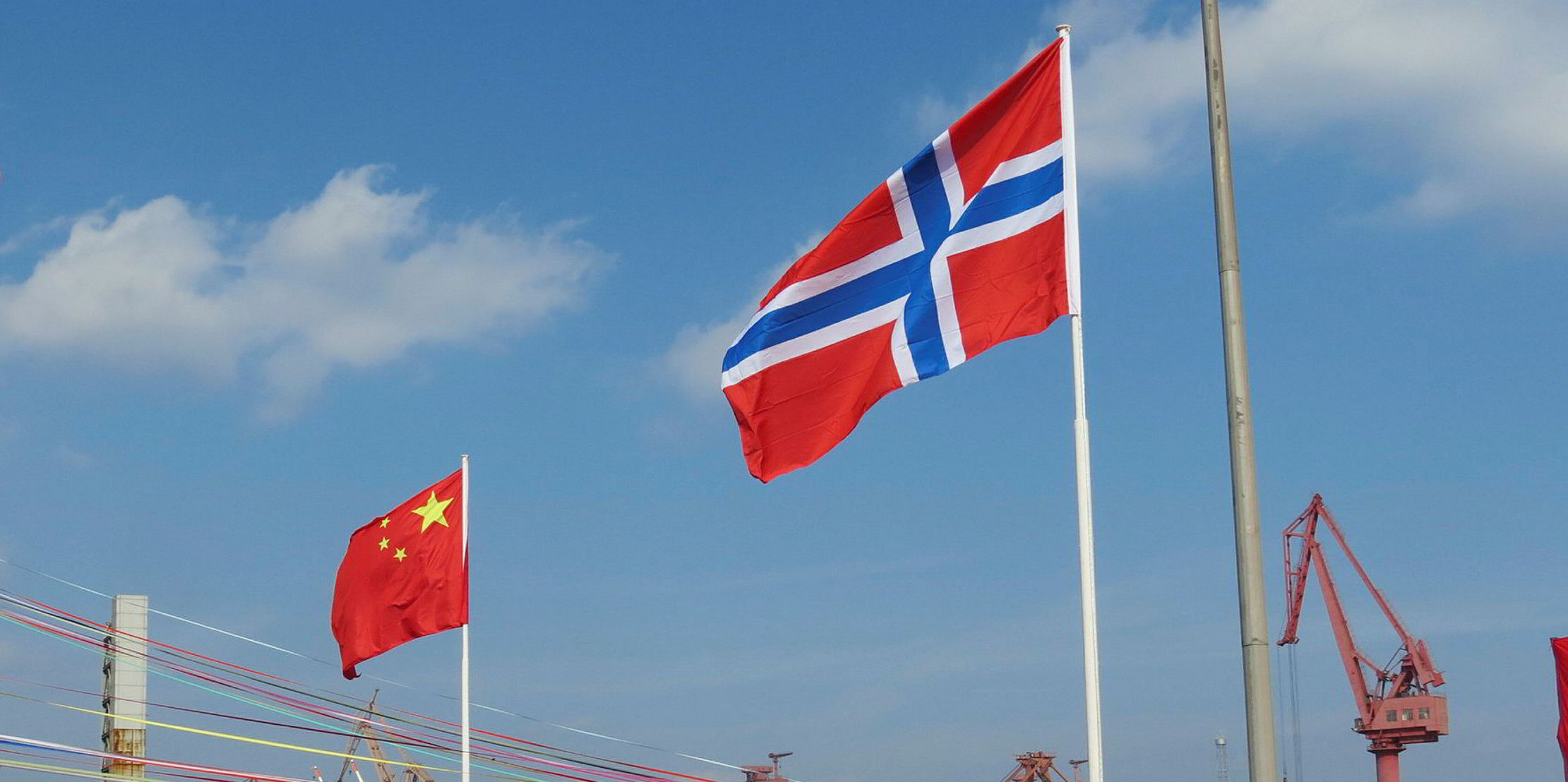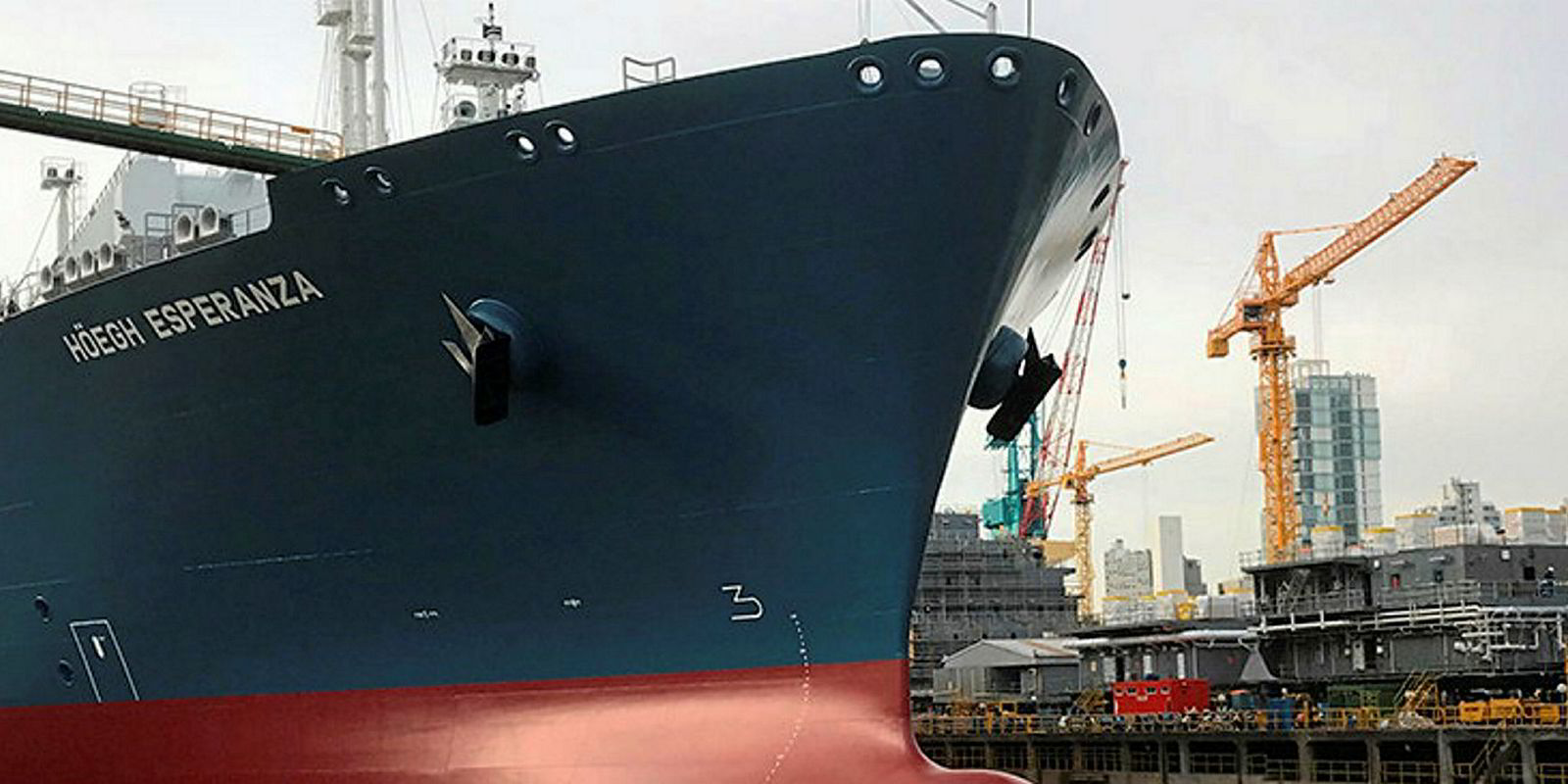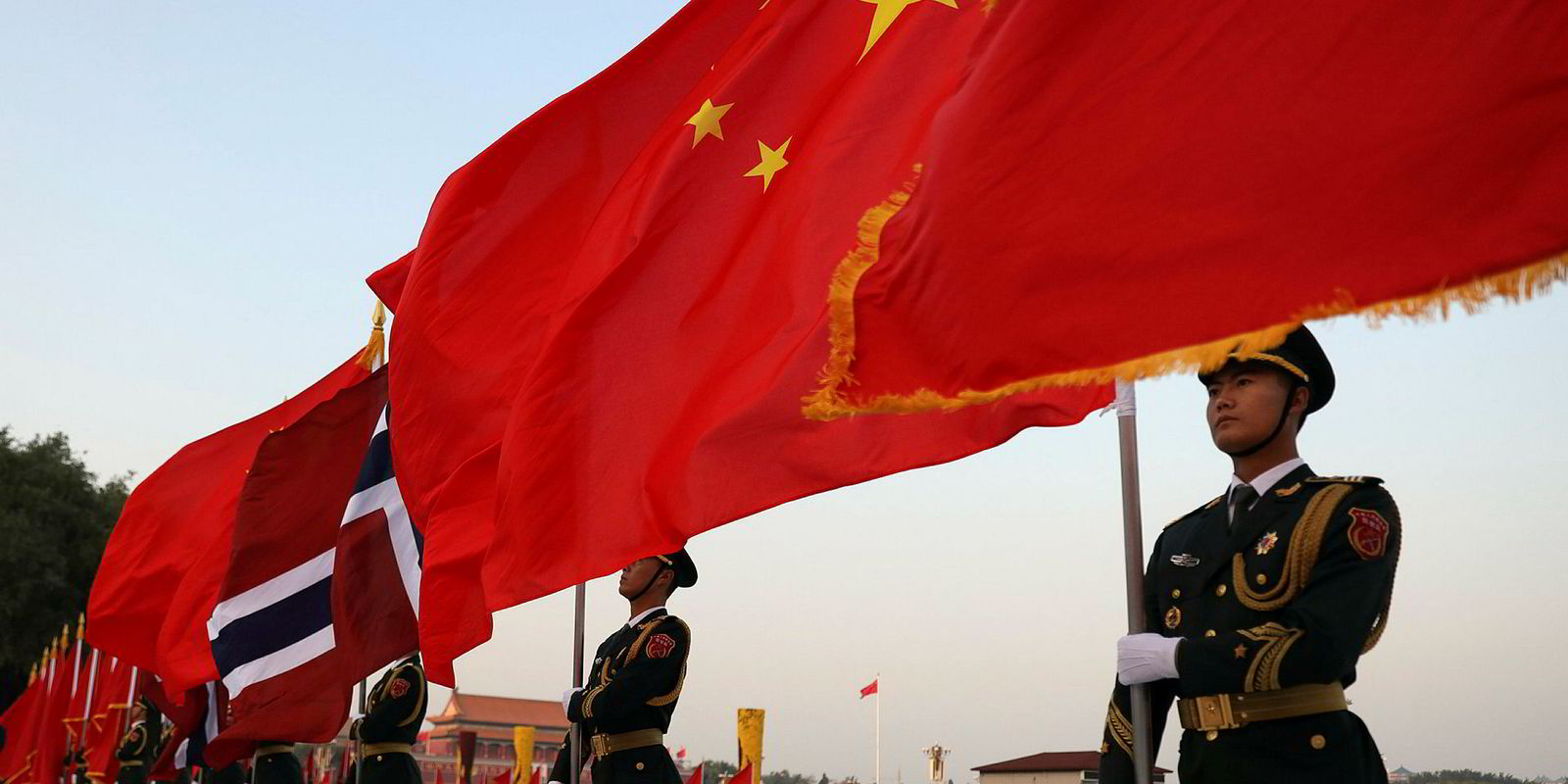Nearly nine years after the rupture in relations between China and Norway when the Nobel Peace Prize was awarded to dissident Liu Xiaobo, Chinese companies are back in force at Nor-Shipping.
With warming ties between China and Norway and pressure to expand shrinking shipyard orderbooks, a total of 35 Chinese companies will occupy 804 square metres of exhibition space at the event in Lillestrom this week.
State-owned China Shipbuilding Industry Corp (CSIC), China State Shipbuilding Corp (CSSC) and Cosco Shipping Heavy Industry — three of China’s largest shipbuilding groups — will all be present at Nor-Shipping for the first time this year.
“This is the largest [space occupied] by Chinese companies we have ever seen,” an event organiser said.
A Chinese pavilion will have 11 exhibitors covering 204 square metres, while some other larger Chinese organisations have rented independent booths.
In comparison, the biennial event saw 22 Chinese exhibitors with a 160-square-metre pavilion in 2017, 15 Chinese firms with a 140-square-metre space in 2015, and 18 Chinese companies with a 150-square-metre pavilion in 2013.
State giants
The degree of Chinese enthusiasm has long been one of the most popular topics during Nor-Shipping.
Following its open protest against the Norwegian Nobel Committee’s decision in 2010, the Chinese government had constrained officials of state-owned enterprises from going to Norway.
However, the restriction has been relaxed since the two countries announced the “normalisation” of bilateral relationships in December 2016.
“The normalisation of the diplomatic relationship between China and Norway has been very important,” Nor-Shipping director Per Martin Tanggaard told TradeWinds.
“It’s part of the reason why we now are pleased to have several Chinese state-owned companies as exhibitors and also the increased number of Chinese delegates.
“In addition, we see improving market conditions in most of the shipping segments, which is positive for the maritime and shipping industry.”
Despite heightened geopolitical uncertainty, the last shipping confidence survey by Norwegian business consultants BDO showed industry participants in most regions were becoming more optimistic in their businesses.
Buoyant trade
Past Nor-Shipping participants suggested Beijing’s reported “snubbing” of the maritime event may have been more of a gesture than any attempt to create trade tension.
Private yards such as Sinopacific never had any trouble representing themselves earlier this decade, and officials from state-owned companies can still be seen in event venues on what they described as “personal tours”.
Affiliates of CSSC, CSIC and China Merchants Group still had exhibitor booths, in spite of the absence of their parent groups.
“We have been there for years ... it’s just that this year the state majors are presenting themselves,” a Chinese exhibitor said.
Bilateral trade has been growing at an unabated pace this decade, with China now one of the largest suppliers of goods to Norway.
For Chinese yards and equipment makers, Norway-based shipowners, such as Fredriksen's group of companies, have been some of their most important clients.
With its ongoing trade war with the US, China has been keen to enhance its trade ties with European nations lately — so it may not be a surprise to see major Chinese participation at Nor-Shipping.
In April, China’s commerce ministry and the Norwegian Ministry of Trade, Industry and Fisheries held a conference to discuss how to expand bilateral trade in areas including the marine economy.
“The Chinese and Norwegian economies can complement each other, and the two countries are actively enhancing trades and investments,” Dong Fengming, the interim representative of the Chinese embassy in Norway, told Chinese news agency Xinhua. He added that a free trade agreement was under discussion.
Click here to keep up to date with TradeWinds' coverage of Nor-Shipping 2019.





